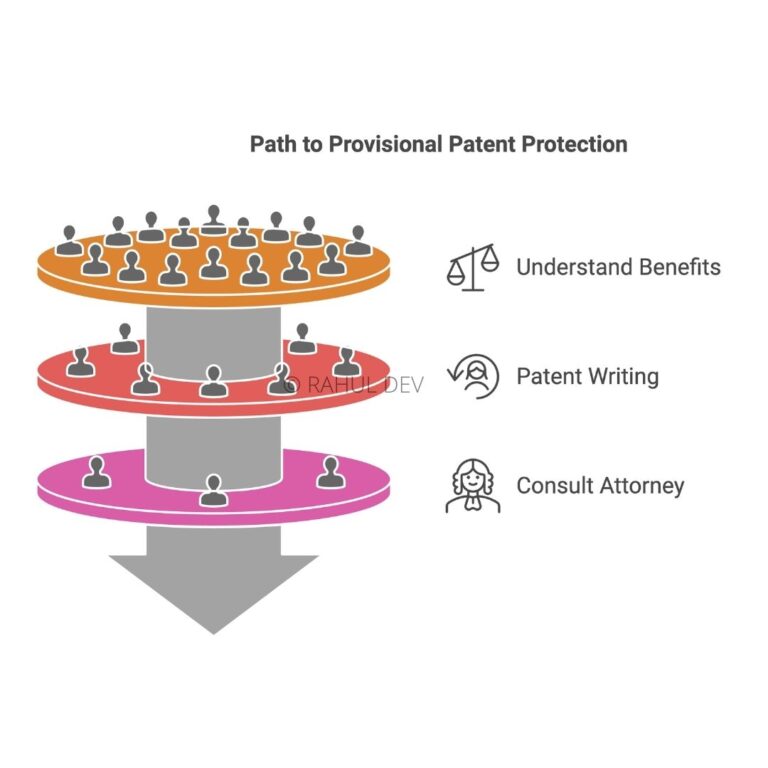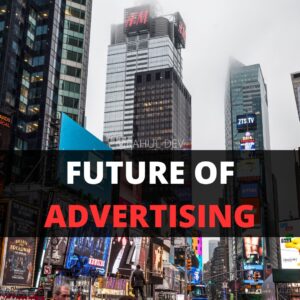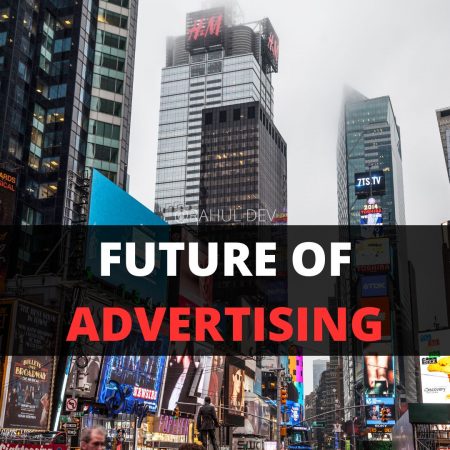Virtual Reality Advertising
Explore the Future of Advertising Session at CES 2025

Understand Practical Aspects
Understand the implications of AI on Advertising in 2025

Explore the Future of Advertising Session at CES 2025

Understand the implications of AI on Advertising in 2025

Protect your innovations across multiple countries and create strong patent portfolio to boost business valuation
Local and global brand protection through international trademark registrations
Extensive research and business writing for technical whitepapers and B2B content products
I write this article about Future of Advertising and Virtual Reality Advertising Insights based on CES 2025 session on advertising innovation. As a technology lawyer and business strategist with over two decades of experience in emerging technologies, I always ensure to research the Consumer Electronics Show (CES) 2025’s groundbreaking sessions, and CES 2025 has a conference session on the future of advertising. Drawing from my extensive background in AI-driven transformation and blockchain integration for global clients, as well as my current research at the Swiss School of Business and Management, I can confidently say that virtual reality advertising is poised to revolutionize how brands connect with their audiences. The technical and market data presented at CES 2025 aligns remarkably with the patterns I’ve observed while developing business process automation solutions and advising on technology integration strategies across Asia Pacific, the US, and Europe by creating strong patent portfolio of advertising innovation products. Let’s explore how virtual reality’s impact on advertising extends far beyond the impressive USD 28 billion market valuation of 2022. We’ll examine the technology’s trajectory toward contributing an estimated USD 1.5 trillion to the global economy by 2030, a projection that resonates with my experience in guiding successful market entry strategies across seven countries covering innovative advertising products and services. In this article, I’ll break down the key developments, challenges, and opportunities that lie ahead in the virtual reality advertising landscape. Let’s see how this transformative technology is reshaping the advertising industry, backed by concrete data and real-world applications that I’ve encountered through my work with global technology companies and innovation-based businesses.
This article covers following topics:
Virtual Reality Advertising Benefits
Augmented Reality Advertising Landscape
Future of Virtual Reality in Advertising


The future of advertising stands at a transformative crossroads, with virtual reality advertising emerging as a dominant force in the digital landscape. The market analysis reveals that the virtual reality sector achieved a substantial USD 28 billion valuation in 2022, demonstrating a robust trajectory with projections indicating a 15% annual growth rate through 2030. The industry experts at Influencer Marketing Hub forecast that virtual reality and augmented reality technologies will generate a remarkable USD 1.5 trillion boost to the global economy by the end of this decade.
The virtual reality advertising has evolved significantly beyond its gaming origins, revolutionizing business interactions through innovative applications like immersive trade shows and virtual networking events as evidenced by virtual reality patent filings. These technological advancements represent a paradigm shift in how businesses maintain professional connections, providing sustainable alternatives to traditional in-person gatherings. The transformation extends across multiple sectors, fundamentally altering how companies engage with their audiences and conduct business operations.
The advancement of augmented reality technology complements this evolution in the advertising landscape. The financial projections indicate substantial growth in the mobile advertising sector, with US mobile ad expenditure expected to reach USD 235.67 billion by 2025. According to illumin’s market analysis, global mobile AR advertising revenues are projected to achieve USD 39.81 billion by 2027. The AR market demonstrates remarkable expansion, growing from USD 5.91 billion in 2018 to an anticipated USD 198 billion by 2025, as retailers and businesses across sectors integrate AR solutions into their marketing strategies while filing augmented reality patents for innovative products.
The convergence of virtual reality and augmented reality technologies creates unprecedented opportunities in the future of advertising. These immersive technologies transform traditional advertising methods into engaging, interactive experiences that capture and maintain audience attention. This technological integration enables marketers to develop sophisticated campaigns that transcend conventional boundaries, offering consumers deeper, more meaningful brand interactions. The result is a revolutionary approach to advertising that combines innovation with engagement, setting new standards for digital marketing effectiveness.
The future of advertising is being revolutionized by virtual reality advertising, transforming how brands connect with their audiences through immersive digital experiences. This technological advancement enables unprecedented levels of engagement, creating personalized brand interactions that transcend traditional advertising limitations. As may be seen, through virtual reality, companies now deliver compelling narratives that invite consumers into carefully crafted brand universes. The implementation of virtual reality advertising manifests in several groundbreaking applications across industries. In retail, the technology enables virtual product trials, allowing consumers to make informed purchasing decisions from their homes. The travel sector has embraced virtual tourism experiences, providing detailed previews of destinations that influence booking decisions. The professional training programs have also evolved, incorporating VR simulations that enhance learning outcomes while reducing operational costs. Business.com’s market analysis confirms that these applications represent more than technological novelty, driving measurable improvements in consumer confidence and sales conversion rates.
The major brands across the world have demonstrated the effectiveness of immersive advertising through innovative campaigns. Coca-Cola’s “TakeATaste” campaign in the UK leveraged augmented reality to create interactive experiences that generated significant consumer engagement. Toyota partnered with Yahoo to develop virtual test drives, revolutionizing the automotive shopping experience. Gucci’s integration with Roblox exemplifies how luxury brands can create accessible virtual retail environments that maintain brand prestige while expanding market reach.
The consumer response to these technological innovations has been remarkably positive. Research by Ericsson Emodo indicates that 68% of consumers report enhanced brand perception through interactive AR advertisements. The impact extends beyond initial engagement, with studies showing a 70% improvement in memory encoding compared to traditional advertising formats. These metrics demonstrate that virtual reality advertising creates lasting brand impressions that influence consumer behavior.
The future trajectory of virtual reality in advertising appears promising as technology becomes more accessible and sophisticated. Brands continue to develop increasingly innovative ways to capture consumer attention through immersive experiences. This evolution in advertising technology represents a fundamental shift in how businesses communicate with their audiences, creating deeper connections that drive meaningful engagement and measurable results.
The integration of virtual reality advertising into mainstream marketing strategies signals a transformative period in digital advertising. As costs decrease and technological capabilities expand, we can expect to see more brands adopting these immersive technologies to create compelling, memorable customer experiences that drive business growth and brand loyalty.
The future of advertising continues to evolve through Extended Reality (XR) technologies, which combine virtual reality, augmented reality, and mixed reality to create unprecedented marketing opportunities. This technological convergence transforms traditional consumer experiences into immersive digital journeys that transcend conventional retail limitations. As virtual reality advertising gains momentum, businesses are discovering innovative ways to engage customers through sophisticated virtual environments.
The Extended Reality applications have revolutionized retail environments through virtual showrooms, enabling consumers to examine products in detail from their homes. These digital spaces allow potential customers to explore everything from automotive displays to furniture collections with unprecedented interactivity. The technology facilitates virtual product trials, transforming the traditional purchasing process by enabling consumers to evaluate products thoroughly before making buying decisions. This capability has proven particularly valuable in sectors ranging from cosmetics to eyewear, where personal fit and appearance are crucial factors. The implementation of interactive advertising through XR technologies has provided marketers with powerful tools for creating memorable brand experiences. These immersive advertisements create lasting impressions that extend well beyond the initial viewing, fostering stronger brand recall and consumer engagement. The technology enables advertisers to craft narratives that resonate with audiences on a personal level, creating emotional connections that traditional advertising methods struggle to achieve.
The virtual store environments represent a significant advancement in retail innovation, allowing brands to experiment with store layouts and merchandising strategies without physical constraints. This virtual reality advertising approach enables retailers to optimize their store designs through data-driven insights, ensuring maximum customer engagement and satisfaction. The technology provides unprecedented opportunities for personalization, allowing retailers to tailor shopping experiences to individual consumer preferences and behaviors.
The cost-effectiveness of XR implementations offers businesses significant advantages in marketing strategy development. The companies can test concepts and configurations virtually before committing to physical implementations, reducing financial risk and improving return on investment. This capability enables brands to iterate and refine their approaches based on real-time consumer feedback, ensuring more successful launches and implementations.
As XR technology continues to advance, its impact on marketing and advertising strategies becomes increasingly significant. From virtual showrooms to personalized shopping experiences, these innovations are reshaping consumer expectations and business capabilities. The future of advertising clearly lies in these immersive technologies, offering unprecedented opportunities for brand engagement and customer interaction.

As a business coach and thought leader, I cannot emphasize enough the importance of innovation, new software patents, mobile apps, and patents for tech companies, startups, and entrepreneurs. The world is rapidly evolving, and staying ahead of the curve is vital for success. Embracing technological advancements such as blockchain and AI can unlock unprecedented opportunities, streamline operations, and propel businesses into the future with competitive valuation via intangible assets.
Click Here for AI Startup Valuation Guide.
For instance, blockchain technology can revolutionize supply chain management and secure data sharing wherein innovative business models are explained to the audience via technical whitepapers, while AI can automate and optimize decision-making processes. Mobile apps are no longer just a luxury; they have become essential tools for engaging customers and offering personalized experiences. Furthermore, securing digital innovation patents is crucial for protecting intellectual property, fostering innovation, and maintaining a competitive edge. By investing in these areas, businesses can position themselves as industry pioneers and pave the way for a prosperous future after thoroughly conducting the due diligence and reviewing the legal opinion letters, which in case of digital assets can assist in determining the tokens as utility assets or coins as utility tokens before listing the assets at an exchange.
Our team of advanced patent attorneys assists clients with patent searches, drafting patent applications, and patent (intellectual property) agreements, including licensing and non-disclosure agreements. Advocate Rahul Dev is a Patent Attorney & International Business Lawyer practicing Technology, Intellectual Property & Corporate Laws. He is reachable at rd (at) patentbusinesslawyer (dot) com & @rdpatentlawyer on Twitter.
Quoted in and contributed to 50+ national & international publications (Bloomberg, FirstPost, SwissInfo, Outlook Money, Yahoo News, Times of India, Economic Times, Business Standard, Quartz, Global Legal Post, International Bar Association, LawAsia, BioSpectrum Asia, Digital News Asia, e27, Leaders Speak, Entrepreneur India, VCCircle, AutoTech).
Regularly invited to speak at international & national platforms (conferences, TV channels, seminars, corporate trainings, government workshops) on technology, patents, business strategy, legal developments, leadership & management.
Working closely with patent attorneys along with international law firms with significant experience with lawyers in Asia Pacific providing services to clients in US and Europe. Flagship services include international patent and trademark filings, patent services in India and global patent consulting services.
Global Blockchain Lawyers (www.GlobalBlockchainLawyers.com) is a digital platform to discuss legal issues, latest technology and legal developments, and applicable laws in the dynamic field of Digital Currency, Blockchain, Bitcoin, Cryptocurrency and raising capital through the sale of tokens or coins (ICO or Initial Coin Offerings).
Blockchain ecosystem in India is evolving at a rapid pace and a proactive legal approach is required by blockchain lawyers in India to understand the complex nature of applicable laws and regulations.